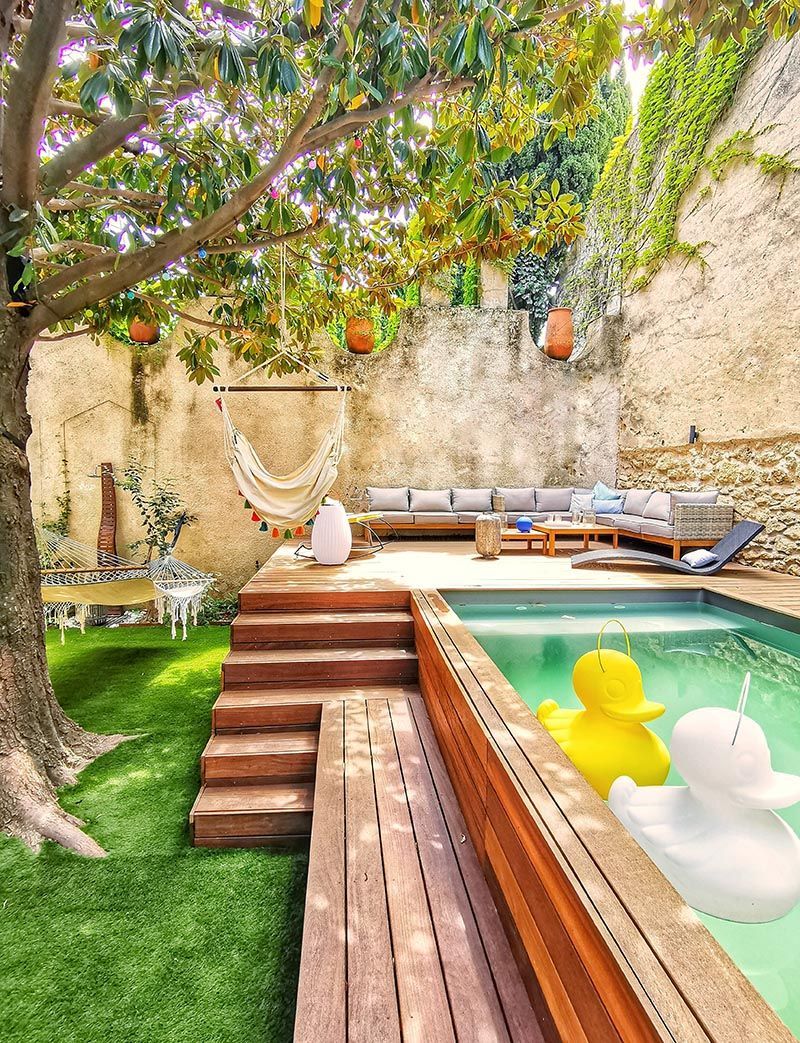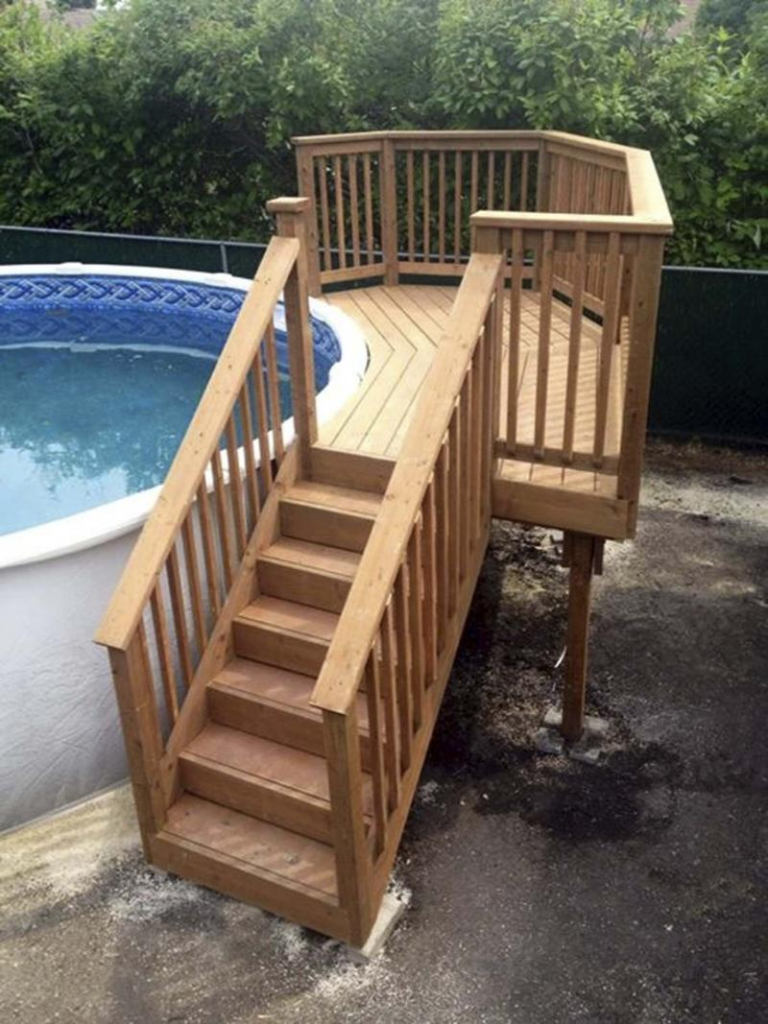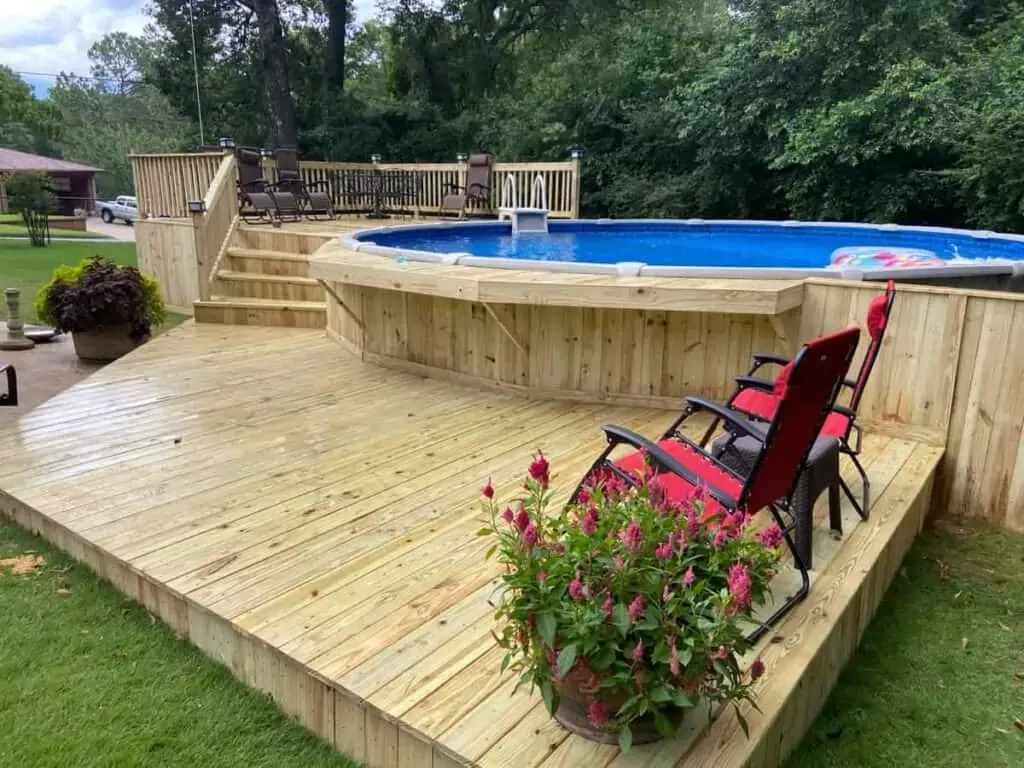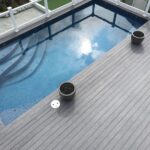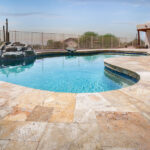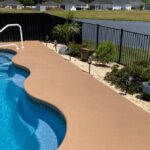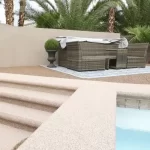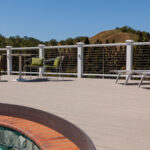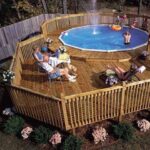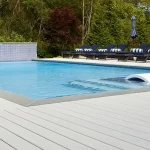A pool deck is an essential component of any swimming pool area, serving not only as a functional surface for relaxation and recreation but also as a key design element that can enhance the overall aesthetic appeal of the space. Pool decks are typically made from a variety of materials, including concrete, wood, pavers, and composite decking, each offering its own set of advantages and drawbacks.
Concrete is a popular choice for pool decks due to its durability and versatility. It can be easily customized with various finishes, textures, and colors to complement the style of the pool and surrounding landscaping. Concrete pool decks are also relatively low-maintenance and can withstand exposure to harsh elements like UV rays and chlorine. However, concrete can be prone to cracking and may require periodic resealing to prevent water damage and wear.
Wood is another common material used for pool decks, offering a warm and natural aesthetic that is particularly well-suited for outdoor spaces. Hardwoods like teak, ipe, and cedar are popular choices due to their durability and resistance to moisture. Wood pool decks require regular maintenance, including sanding, staining, and sealing to prevent rot and decay. They can also become slippery when wet and may require the addition of non-slip coatings or mats for safety.
Pavers are a versatile option for pool decks, providing a wide range of design possibilities with their various shapes, sizes, and patterns. They are easy to install and can be easily replaced if damaged. Paver pool decks are durable and resistant to cracking, fading, and staining. However, they may shift or settle over time, requiring periodic maintenance to ensure a level surface. Pavers can also be more expensive than other materials like concrete or wood.
Composite decking is a relatively newer option for pool decks, offering the look of wood without the maintenance requirements. Made from a blend of recycled wood fibers and plastic, composite decking is highly durable, resistant to rot, mold, and insects, and requires minimal upkeep. Composite pool decks are available in a variety of colors and finishes, making it easy to achieve a customized look. However, composite decking can be more expensive upfront than other materials and may become hot to the touch in direct sunlight.
When choosing a material for a pool deck, it is important to consider factors such as durability, maintenance requirements, safety, and aesthetics. The best option will depend on individual preferences and budget constraints. Ultimately, a well-designed and properly maintained pool deck can enhance the overall enjoyment and functionality of a swimming pool area, creating a beautiful and inviting space for relaxation and entertainment.
